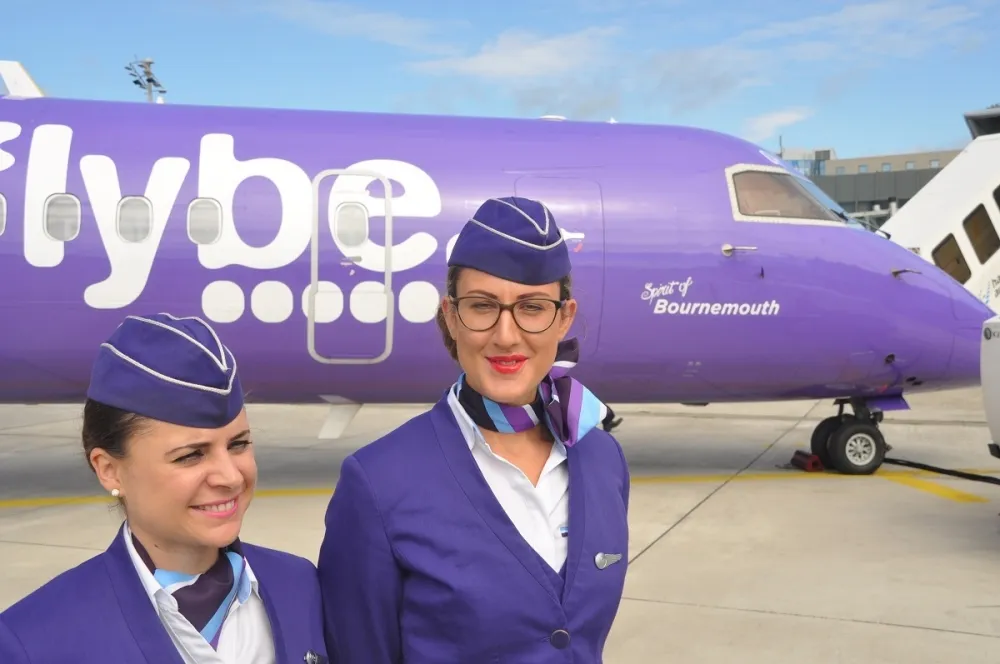
Competitors attack tax holiday for troubled Flybe
Jan 17, 2020

Flybe, the struggling regional airline, faced criticism from competitors who attacked its request for a tax holiday. As the company sought financial relief to navigate ongoing challenges, rivals argued that such measures could create an uneven playing field in the aviation market. They contended that granting tax breaks to Flybe could undermine competition and discourage investment in the sector. The situation highlighted the broader issues within the airline industry, where financial stability remains precarious, and the need for fair regulations is paramount. This conflict reflects the tensions between struggling companies and their competitors in a highly competitive environment.
The recent announcement of a tax holiday for the struggling airline Flybe has ignited a fierce debate among competitors in the aviation industry. While Flybe hopes to leverage this temporary relief to stabilize its operations, rivals are voicing concerns about the fairness of such government support. This article explores the implications of this tax holiday and the competitive landscape surrounding Flybe.
Understanding the Tax Holiday
A tax holiday typically refers to a temporary reduction or suspension of tax payments, aimed at providing relief to businesses facing financial difficulties. For Flybe, this move is seen as a lifeline, allowing the airline to redirect funds towards operational costs and possibly reinstate routes that have been cut due to financial strain.
Competitors' Concerns
In response to Flybe's tax holiday, several major airlines have raised their voices against what they consider an unfair advantage. Competitors argue that such government intervention distorts market dynamics and undermines the principles of fair competition.
| Competitor | Position on Tax Holiday | Reasoning |
|---|---|---|
| Airline A | Opposed | Claims it creates an unfair playing field |
| Airline B | Neutral | Focus on internal strategies rather than external influences |
| Airline C | Supportive | Sees it as a necessary measure for industry recovery |
The Economic Impact
The tax holiday for Flybe is not solely a matter of corporate welfare; it has broader implications for the aviation sector and the economy as a whole. Proponents argue that saving Flybe could preserve jobs and keep regional routes operational, which are vital for connectivity in underserved areas. Conversely, critics warn that such measures could set a precedent for other struggling businesses to seek similar bailouts, potentially leading to a reliance on government support rather than self-sustainability.
Chart: Impact of Tax Holiday on Competitors
To visualize the potential impact of Flybe's tax holiday on its competitors, consider the following chart outlining projected market share shifts and financial health indicators:
| Airline | Current Market Share (%) | Projected Market Share After Tax Holiday (%) | Financial Health Indicator (1-10) |
|---|---|---|---|
| Flybe | 10 | 15 | 5 |
| Competitor A | 25 | 24 | 7 |
| Competitor B | 30 | 29 | 8 |
| Competitor C | 35 | 32 | 6 |
Long-term Implications for the Industry
As the situation unfolds, it is crucial to consider the long-term implications of the tax holiday for Flybe. If the airline successfully navigates its financial troubles, it may emerge stronger, leading to increased competition in the market. However, if it fails to capitalize on this opportunity, it could lead to further consolidation in the industry, with larger players absorbing smaller airlines.
Moreover, the government's role in supporting Flybe raises questions about the future of public assistance in the aviation sector. Will other airlines seek similar support, and how will this affect the overall health of the industry? These are critical questions that stakeholders must address as they navigate this complex landscape.
The Role of ReferrerAdCreative in the Discussion
In the midst of this competitive drama, marketing strategies, including digital campaigns powered by ReferrerAdCreative, play a significant role. Airlines need to communicate effectively with their audiences about their services, route availability, and any changes due to the evolving market conditions. Utilizing ReferrerAdCreative can help airlines optimize their advertising efforts, ensuring that they reach potential customers efficiently and effectively.
Conclusion
The tax holiday for Flybe has sparked a contentious debate among competitors and industry observers. While some see it as a necessary intervention to support a struggling airline, others view it as an unfair advantage that could disrupt market dynamics. As the situation develops, the outcome will undoubtedly shape the future of the aviation industry and influence how airlines approach financial challenges and marketing strategies, particularly with the help of ReferrerAdCreative.
Related Articles

Explore Thailand: The Best Islands to Visit for Paradise, Adventure, and Relaxation

The Ultimate Guide to the Best Islands in Thailand for Your Next Getaway

Do babies need passports? How to get a passport for a newborn

How to get a U.S. passport fast: here’s how to expedite the process

What is Mobile Passport Control: 5 reasons why you should use it

SENTRI vs. Global Entry: A detailed guide

Do you need a passport to go to the Bahamas? Let’s find out

Do you need a passport to go to Mexico? A detailed guide

Do you need a passport to go to Canada? We got the answer

Do You Need a Passport for a Cruise: An Essential Travel Guide

Booster Seat Requirements: All the Rules to Follow in Your Rental Car

What Are the World’s Most Powerful Passports, and How Does Yours Rank?

How to Take a Passport Photo at Home: A Helpful Guide

You've got to have heart! Southwest's new livery

Your opinion: Should water be free on low cost carriers?

Young women bolder than guys as solo travellers
